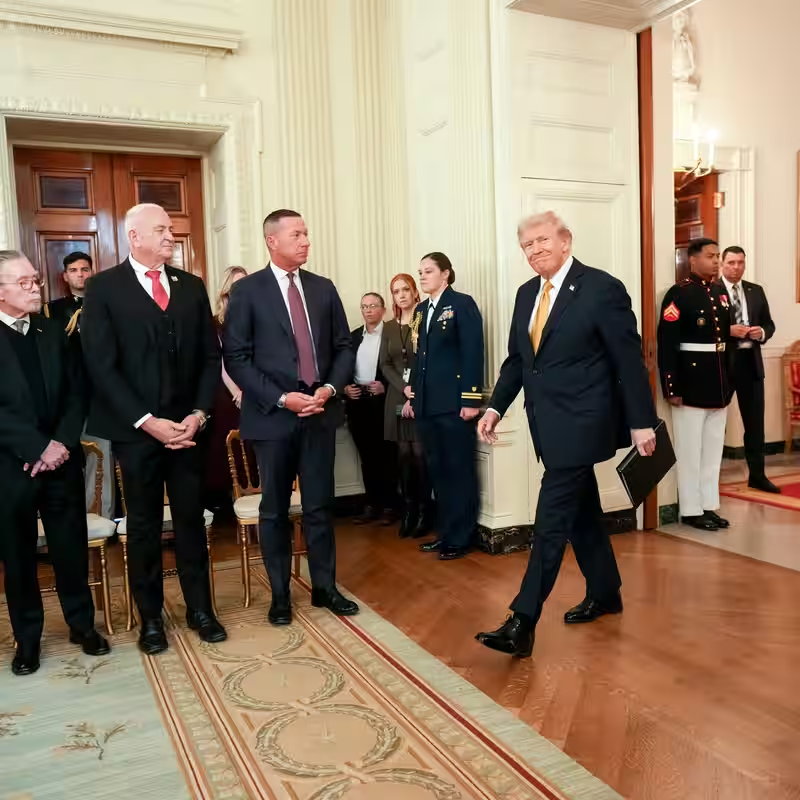Table of Contents
- Trump Asserts Sole Authority for Military Action
- From Sea to Land: Escalating the Campaign
- Legal Experts Warn of Constitutional Overreach
- Congress Pushes Back
- How Past Presidents Handled Similar Moves
- Sources
Trump Asserts Sole Authority for Military Action
In a bold declaration that has reignited debate over executive power, President Donald Trump announced on October 23, 2025, that he will not seek congressional authorization for an expanded military campaign against Mexican drug cartels. “I don’t need permission,” Trump told reporters at a White House press briefing. “The Constitution gives me the authority to protect American lives—and I’m using it.”
This stance marks a sharp departure from historical norms, where presidents—even during covert operations—typically notified or consulted Congress, especially when operations crossed into foreign territory or involved sustained combat.
From Sea to Land: Escalating the Campaign
Until now, U.S. military actions against cartels have been limited to maritime interdiction and intelligence support. But Trump confirmed plans to extend operations onto land, including potential drone strikes and special forces raids inside Mexico—without the explicit consent of the Mexican government or the U.S. Congress.
“We’ve been chasing fentanyl labs from the Gulf to the Pacific,” Trump said. “Now we’re going after them where they hide—in the mountains, in the jungles, wherever they think they’re safe.”
The Department of Defense has not released operational details, but defense officials familiar with the plan say it could involve Joint Special Operations Command (JSOC) units and real-time surveillance from U.S. satellites and drones.
Legal Experts Warn of Constitutional Overreach
Article I, Section 8 of the U.S. Constitution grants Congress the sole power to declare war. While the War Powers Resolution of 1973 allows presidents to deploy troops for up to 60 days without approval, sustained military campaigns—especially on foreign soil—have traditionally required congressional backing.
“This isn’t a rescue mission or a one-off strike,” said Professor Laura Chen, constitutional law expert at Georgetown University. “If the U.S. is conducting repeated ground operations in another sovereign nation, that’s an act of war—and Congress must be involved.”
Even some former Trump administration officials have expressed concern. “There’s a difference between counter-narcotics support and unilateral military invasion,” said a retired Pentagon official who requested anonymity.
Congress Pushes Back
Lawmakers from both parties reacted swiftly. Senate Majority Leader Chuck Schumer called the plan “reckless and unconstitutional,” while House Speaker Mike Johnson warned it could “trigger a diplomatic crisis with Mexico.”
A bipartisan group of senators announced plans to introduce a resolution invoking the War Powers Act to force a vote on any sustained military action. “The president cannot wage war by tweet—or press conference,” said Sen. Tim Kaine (D-VA), a longtime advocate for congressional war powers.
How Past Presidents Handled Similar Moves
Historical precedents show a mix of consultation and controversy:
| President | Action | Congressional Approval? |
|---|---|---|
| Ronald Reagan | 1983 Grenada invasion | Notified after launch; later justified under regional security |
| Bill Clinton | 1999 Kosovo airstrikes | No formal declaration; relied on NATO mandate |
| Barack Obama | 2011 Libya intervention | Cited War Powers Resolution; faced bipartisan criticism |
| Donald Trump | 2025 cartel land strikes | Explicitly refuses to seek any authorization |
What sets Trump’s 2025 move apart is not just the scale—but the outright rejection of legislative oversight, a stance that could set a new precedent for executive power.




